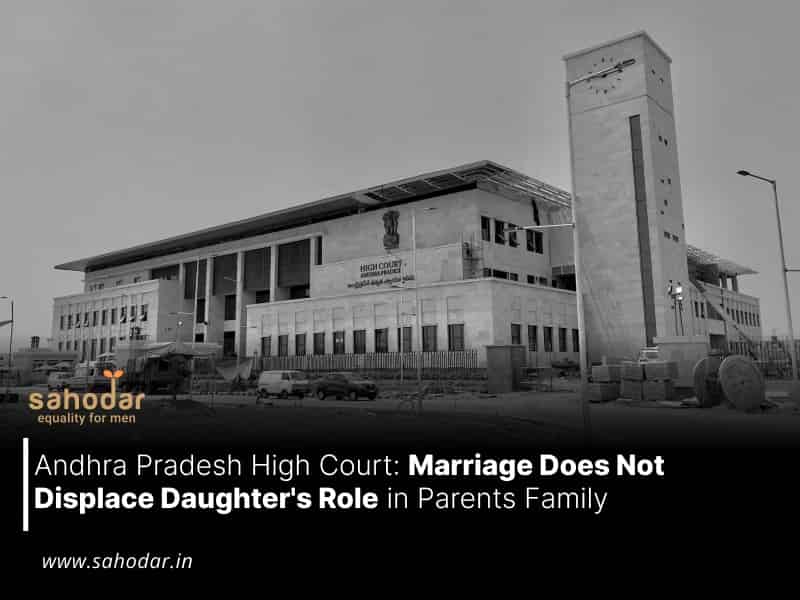The Court criticised a 1999 State policy that extended different treatment to sons and daughters when it came to compassionate appointments, depending on whether the daughter was married.
The Andhra Pradesh High Court recently underscored that daughters are lifelong members of their parents’ family, regardless of their marital status.
Justice K. Manmadha Rao emphasized that a daughter’s marriage does not end her membership in her parents’ family.
“The sons and daughters whether they are unmarried or married, they are part of the family of their parents for the entire life. Just because the daughter got married, saying that she is not a member of her parents’ family is nothing but (atrocious). Because of her marriage, the daughter would not cease her status as a member of the family of her parents,” the Court said in its October 18 ruling.
The Court made this remark while reviewing a State policy that provided varying treatment for sons and daughters regarding compassionate appointments (jobs offered to family members of deceased government employees) based on the daughter’s marital status.
Just because the daughter got married, saying that she is not a member of her parents’ family is nothing but (atrocious).
Andhra Pradesh High Court
A petition was submitted to the Court contesting the refusal of compassionate appointment for the married daughter of a man who worked as a sweeper at a temple before his death in 2013.
The relevant authority, an executive officer, requested that she provide a copy of her divorce certificate, as she had applied for the compassionate appointment on the basis that her husband had abandoned her.
In response, the woman explained that she was unable to locate her husband to obtain the certificate. In 2021, she submitted a new request for compassionate appointment to her father’s former position as a sweeper.
As the authorities failed to respond, she approached the High Court for relief.
During the hearing, the Court learned that according to a State government order from 1999, a married daughter of a deceased government employee could be appointed on compassionate grounds, but only if there were no competing claims from the employee’s spouse or other children, and if the married daughter was dependent on the employee.
The Court, however, pointed out that no such condition existed for a married son to qualify for compassionate appointment, criticizing this disparity as discriminatory.
“Married daughters are deemed ineligible solely because they are married. Showing discrimination toward a ‘married daughter’ for her marital status, while no such ineligibility applies to a ‘married son,’ appears arbitrary and discriminatory,” the Court said.
The Court determined that the denial of compassionate appointment to the petitioner, a married daughter, was illegal and arbitrary. Consequently, it granted the writ petition and directed the temple authorities to appoint her as a sweeper or to any appropriate position, effective from the date of her father’s passing, along with all associated service benefits.
However, the petitioner is not entitled to claim monetary benefit, as she was not appointed to the post on the principle of ‘NO WORK – NO PAY”,” the Court clarified.

